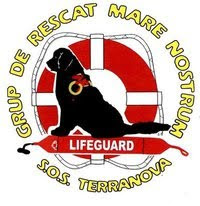
There is a very revealing document prepared by the Director of the National Park Service in 2002, Ms. Fran Mainella. This document clearly explains why the GGNRA violated the promises made to the citizens when the National Recreation Area was created, and abolished off-leash recreation in 2001. This document explains how the NPS has perverted the Organic Act of 1916 to justify doing so. Further, it reveals that the DEIS process is a template utilized by the NPS to restrict access for humans engaged in various activities in National Park Units. So, despite our comments on this DEIS, it is obvious the GGNRA will not provide us the access we desire or deserve through the DEIS process.
Lastly, this document reveals that some Superintendents of NPS units believe these activities are unlawful. This may explain why we have had some relief in the courts, and why Congress or the courts are the only entities that will provide us the access we are entitled to. It is in the best interest of all citizens who enjoy recreating in the GGNRA to take note as it is not dogs that are the target of the NPS, but people, regardless of their recreational interests. We are just the first to be exiled.
The document is entitled, “Briefing Paper-Subcommittee on National Parks, Recreation , and Public Lands-Subcommittee Oversight Hearing-April 25, 2002-2:00 p.m. 1334 LHOB”. The document is embedded in its entirety at the Ocean Beach DOG web site.
First, the paper describes how the GGNRA/NPS has altered the interpretation of the Organic Act so as to eliminate the priority for access and enjoyment of our park-the GGNRA.
The Organic Act of 1916 established the National Park Service and stated its purpose "to conserve the scenery and the national historic objects and the wildlife therein and to provide for the enjoyment of the same in such manner and by such means as will leave them unimpaired for the enjoyment of future generations." The purpose of the Park Service, then, can be summarized in two emphases: (1) to conserve park resources and (2) to provide for the enjoyment of these resources by the public. A proper balance must be found between the two.
There is concern that the 2001 Park Management Policies seem to be highly biased in favor of the first objective of the Act at the expense, and to the exclusion of, the second objective. In fact, when the new policies were introduced NPS Director Robert Stanton stated, "We believe this update of Management Policies will improve the Service's ability to protect park resources and values as Congress intended when it passed the 1916 Organic Act ..." No mention was made of the second requirement of the Organic Act. Moreover, the handbook itself lists as the sole fundamental purpose of the Service to conserve park resources and values while omitting the second provision.
This sharply contrasts with the 1988 Management policies which distinctly support the balance of both resource conservation and providing enjoyment to the public.
The new management policies are to be used "as the basic Service wide policy manual used by park superintendents and other NPS managers to guide their decision-making (emphasis added]''' These policies have already permeated into local park units and have significantly affected users around the nation. Limitations on snowmobiles, personal watercraft, and even the ability to walk pets in a national recreation area have been limited under the guise of the 2001 policies.
Next the briefing paper describes one avenue for eliminating access to the public-the recovery of endangered and threatened species; which has been extensively utilized by GGNRA management. This explains the GGNRA’s repeated treatment of any habitat, no matter how deficient, as critical habitat. The GGNRA has also implemented the “build it and they will come” philosophy to further reduce public access.
A few issues of concern are outlined below:… While the 1988 Management Policies state that the NPS will participate in the recovery of endangered and threatened species within park boundaries, the 2001 policies state that the Service will "pro-actively" work to "survey for, protect, and strive to recover all species native to national park system units ... (4.4.2.3)" There is concern that the new policy does not seem to be limited by the park's boundaries. The policy would seem to greatly expand the jurisdiction and role of the NPS by directing the agency to monitor species living outside park boundaries that might be considered native to the area. This concern has heightened with the recent fraudulent placement of lynx hair in an effort to extend critical habitat.
Within this new prism of the NPS Management Objectives, the concept of impairment that is prohibited by the Organic Act is broadly defined. The briefing paper states:
An impact to any park resource or value may constitute an impairment….This policy seems to be a very broad interpretation of the impairment standard which will pose numerous problems for park management, as well as invite numerous legal challenges. In fact, some park superintendents have privately expressed concern regarding the problematic nature of the management polices and have specifically cited the impairment standard.
In addition, language in the policies have given NPS a foothold in regulating historically sound forms of recreation.
The DEIS process has been utilized to eliminate/minimize snowmobiles in National Parks. Now the GGNRA is using the same process to eliminate off-leash recreation here. You note the briefing paper classifies snowmobiling and off-leash recreation as historically sound forms of recreation (in selected Park properties). It is no surprise the decision to proceed with the current DEIS for pet management here in the GGNRA was not justified by any underlying data, documents or studies. Please see the page entitled “DEIS is Unlawful” on this site for a full explanation.
Snowmobile use has been under intense scrutiny in the park system…The Service recently released its Draft Supplemental Environmental Impact Statement (DSEIS) motivated by concerns of motorists who were denied access because of the final rule. The new findings in the Draft SEIS heavily relied on the terminology and guidelines of the 2001 Management policies.
The path is now clear. Unfortunately, in 2002, Congress failed to act to protect our interests. In 2004 and 2005 we were fortunate enough to have three citizens spend the time and money to reverse the ban on off-leash recreation. This time, we cannot depend upon the Courts, especially considering the expense to challenge the GGNRA/NPS in court. Beyond this, any reversal we achieve in court will inevitably be followed by yet another plan by the GGNRA/NPS to again remove off-leash recreation. This time we must convince the Congressional Subcommittees that oversee the NPS to do the following:
Oppose not only the Preferred Alternative, but all Alternatives considered in the DEIS
Hold Congressional hearings that will look at the problems caused by the National Park Service’s improper interpretation of the Organic Act.
Introduce legislation that will do one of the following:
Create a Section 7 regulation to allow off-leash dog walking in all areas where it was allowed in the 1979 Pet Policy, plus off-leash in San Mateo County and on lands that are added to the GGNRA in the future, with no “poison pill”.
Clarify the enabling legislation to allow national recreation areas to be administered differently than national parks, and to be managed with an emphasis on recreation.
Alternatively, take the GGNRA out of the National Park Service and give it to the US Forest Service, with the understanding that recreational access will be protected within it.
All stakeholders interested in retaining off-leash recreation in the GGNRA must contact their legislative representative in Congress. The contact information is listed below.
CONTACT:
U.S. Representative Jackie Speier, (202) 225-3531
U.S. Representative Lynn Woolsey, (202) 225-5161
U.S. House Minority Leader Nancy Pelosi, (202) 225-4965
U.S. Representative Anna Eshoo, (202) 225-8104
U.S. Senator Barbara Boxer, (202) 224-3553
U.S. Senator Dianne Feinstein, (202) 224-3841
If you’re not sure who your Congresswoman is, go to www.congress.org and enter your zip code.





































2 comments:
Bloody brilliant!!!!
Unbelievable!!
Post a Comment